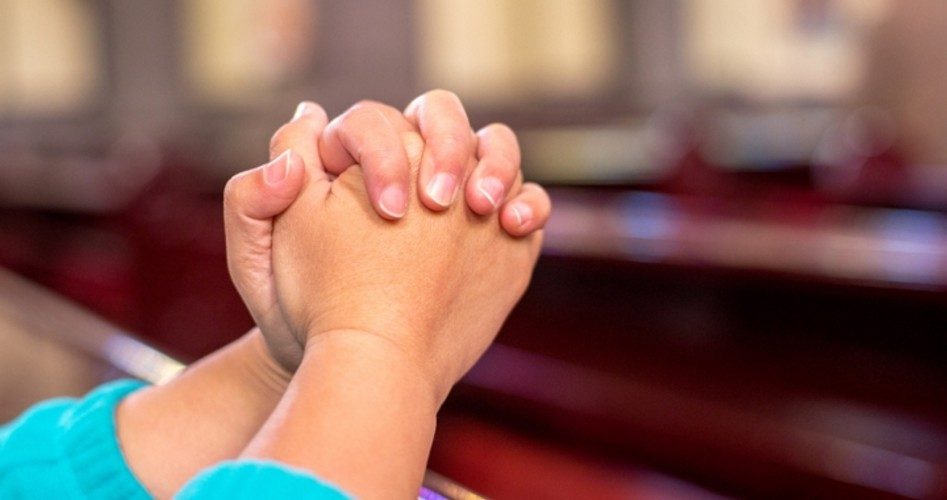
This year’s May 3 National Day of Prayer appeared to be a low-key affair across America, with little fanfare or press attention as countless thousands of congregations and faithful knelt to petition God for His continued mercy and blessings over the nation.
However, the president himself took the opportunity to emphasize the importance of prayer, and to put into motion a measure he said would help ensure religious freedom for all Americans.
In an official proclamation the president said that for the nation as a whole prayer “has long been fundamental to our pursuit of freedom, peace, unity, and prosperity. Prayer sustains us and brings us comfort, hope, peace, and strength. Therefore, we must cherish our spiritual foundation and uphold our legacy of faith.”
Mr. Trump recalled that prayer has been foundational to America’s strength and resolve since the republic’s founding. Noting that when the Continental Congress gathered in Philadelphia its delegates prayed daily for guidance, with their efforts producing “the Declaration of Independence and its enumeration of the self-evident truths that we all cherish today.”
Today, he declared, the American collective continues to believe “that all men and women are created equal and endowed by their Creator with certain inalienable rights, including life, liberty, and the pursuit of happiness.”
As he encouraged Americans to join together in petitioning God for His continued guidance and blessing, the president offered a prayer of his own: “May our nation and our people never forget the love, grace, and goodness of our Maker, and may our praise and gratitude never cease.”
Later in a White House Rose Garden ceremony, President Trump signed an executive order aimed, he said, at strengthening religious freedoms in America. One of the aims of the order is to establish a “White House Faith and Opportunity Initiative,” which the president said would focus on strengthening religious freedoms and helping to ensure that “the faith-based and community organizations that form the bedrock of our society have strong advocates in the White House and throughout the federal government.”
The White House faith initiative will include a newly commissioned White House faith adviser, who will work with faith leaders from throughout the nation to strengthen religious liberties, said the president.
The executive order also aims to ensure that religious causes and organizations have “equal access to government funding and equal right to exercise their deeply held beliefs,” said the president, without explaining the federal government’s authority to dispense funding to religious — or any other — organizations or causes.
Nonetheless, declared the president, “We take this step because we know that in solving the many many problems and our great challenges, faith is more powerful than government and nothing is more powerful than God.”
As reported by CBS News, “Last year, on the National Day of Prayer, the president signed a similar ‘religious liberty’ executive order that would allow the IRS to opt not to enforce the Johnson Amendment, which prohibits non-profits such as churches and charities from ‘directly or indirectly’ engaging in a political campaign.” The order “also provided regulatory relief from Obamacare requirements such as the requirement that organizations provide contraception care, which was heavily debated in the Little Sisters of the Poor case,” reported CBS.
Among those applauding the president’s latest faith-based executive order was Tony Perkins of the Family Research Council, who said: “The announcement of President Trump’s faith initiative is further evidence that this administration is not only committed to protecting our First Freedom but in also acknowledging that our faith in God contributes to the guidance and well-being of our country. I look forward to working with the president to make sure the community of faith will be able to bring hope and help to people in the United States and around the globe.”

